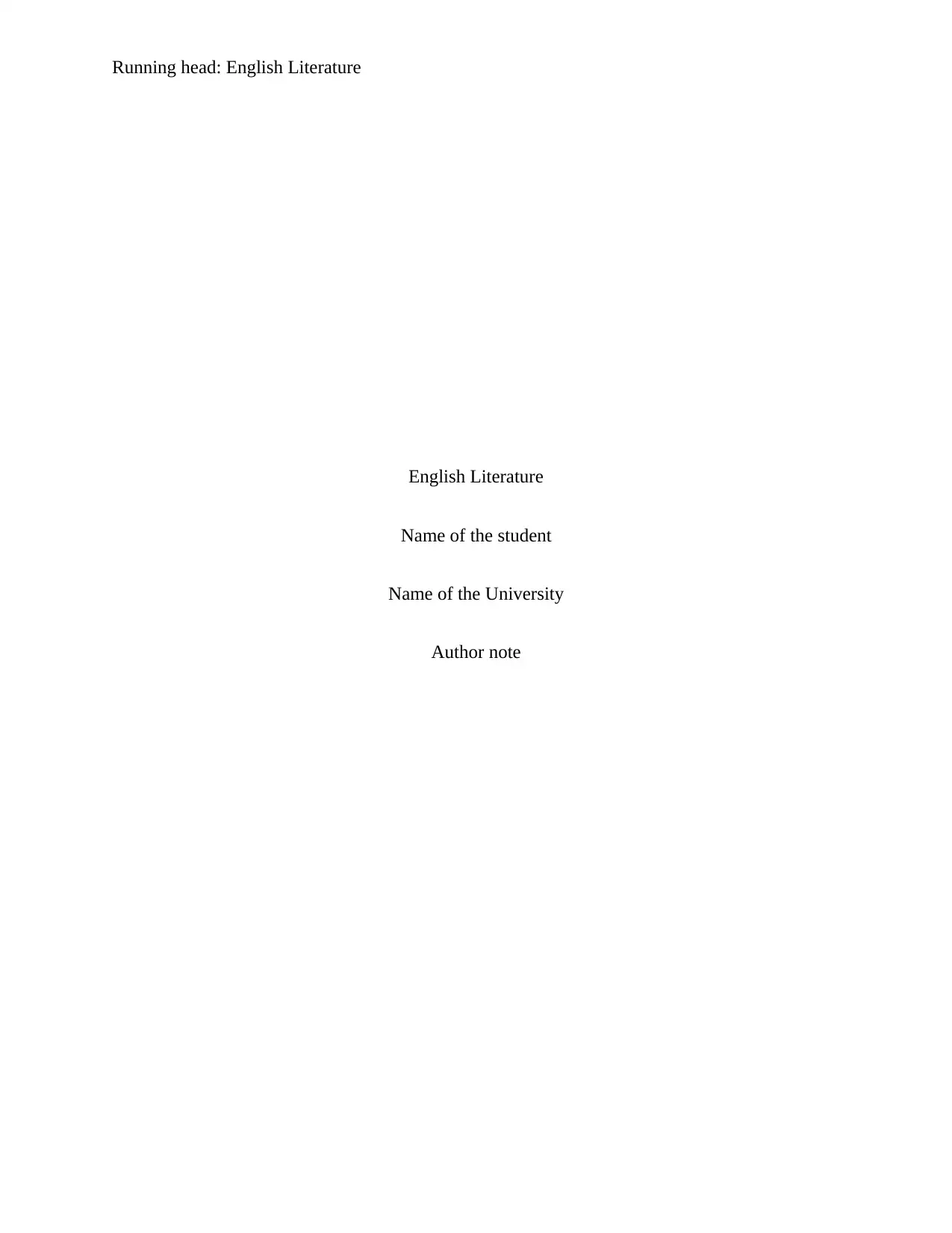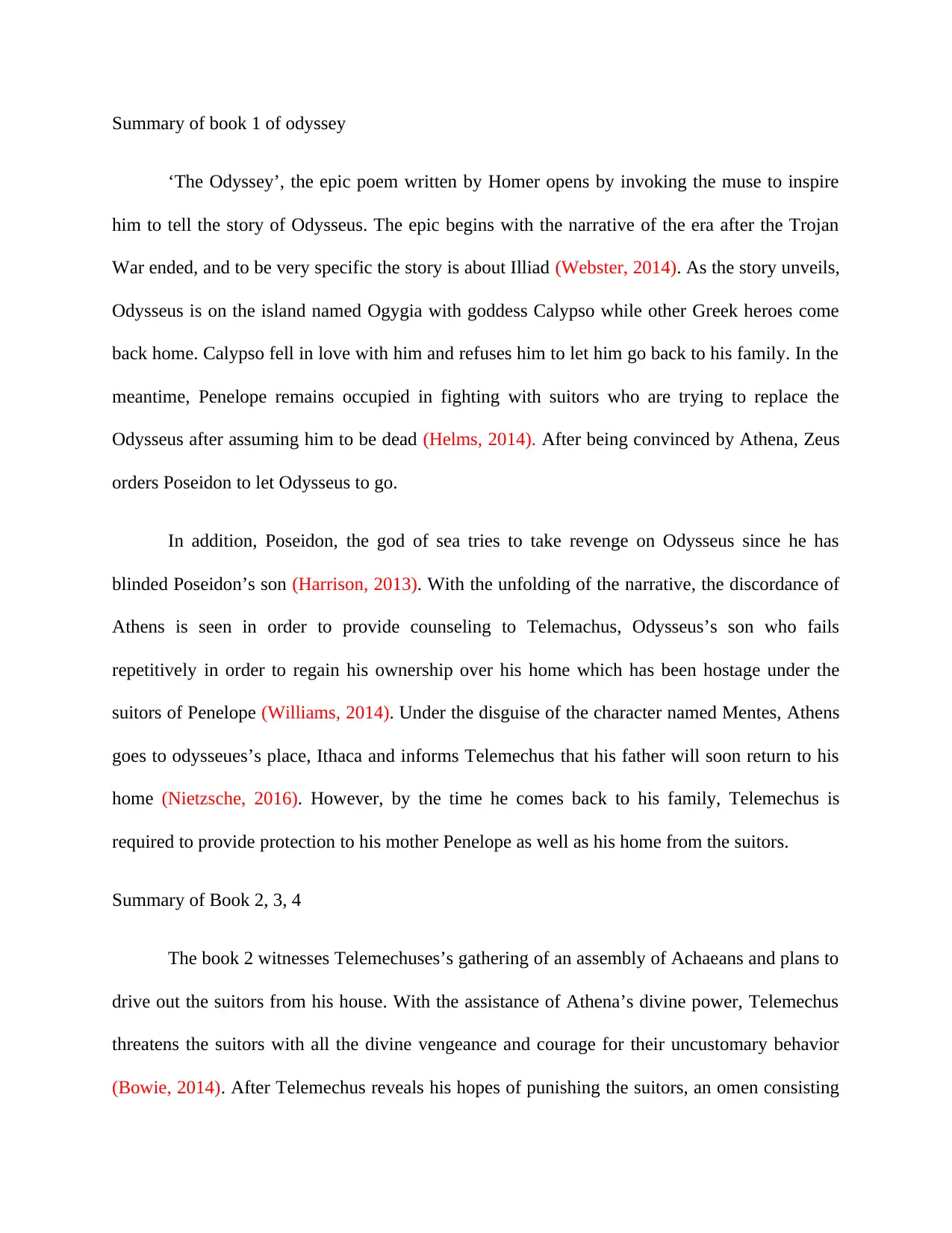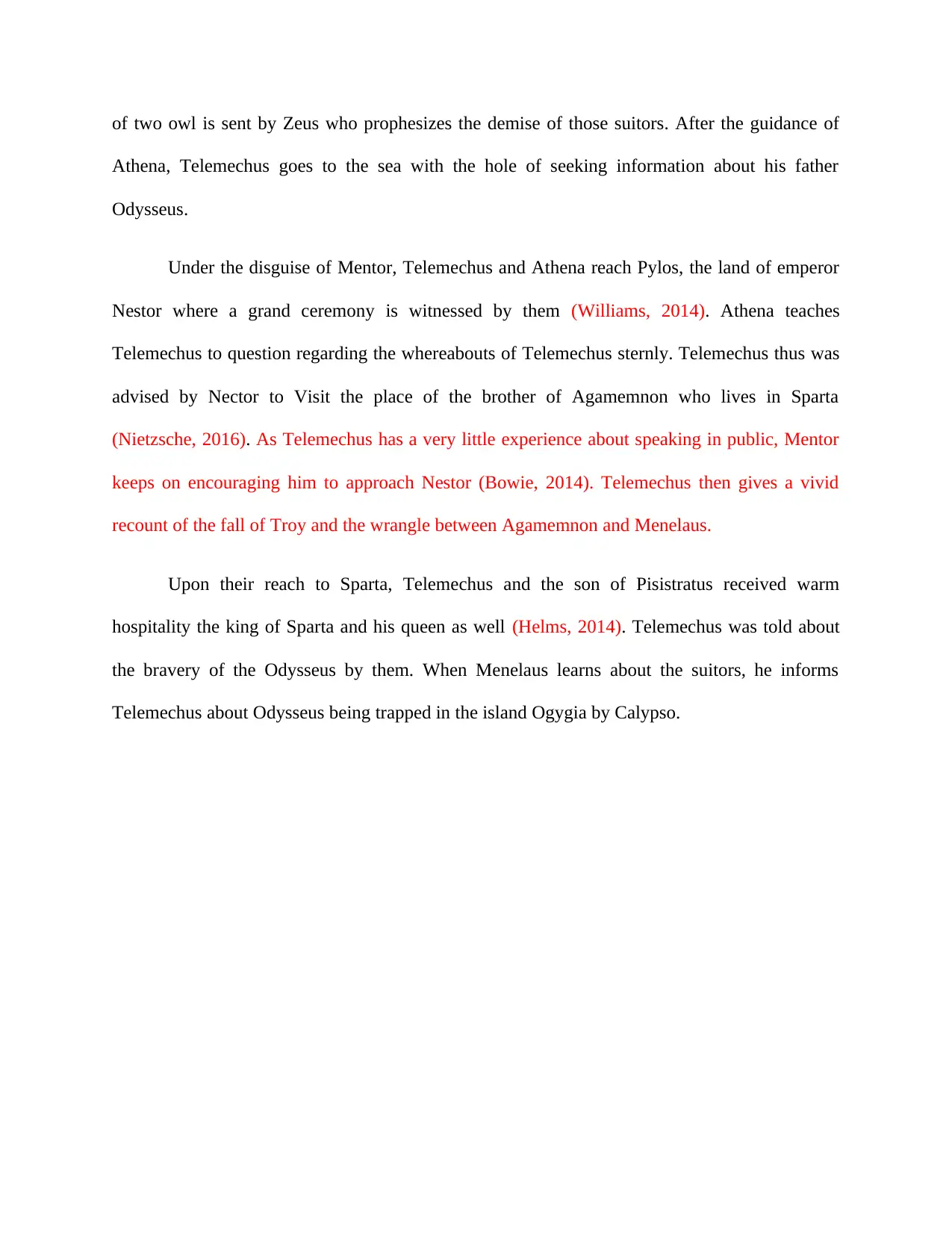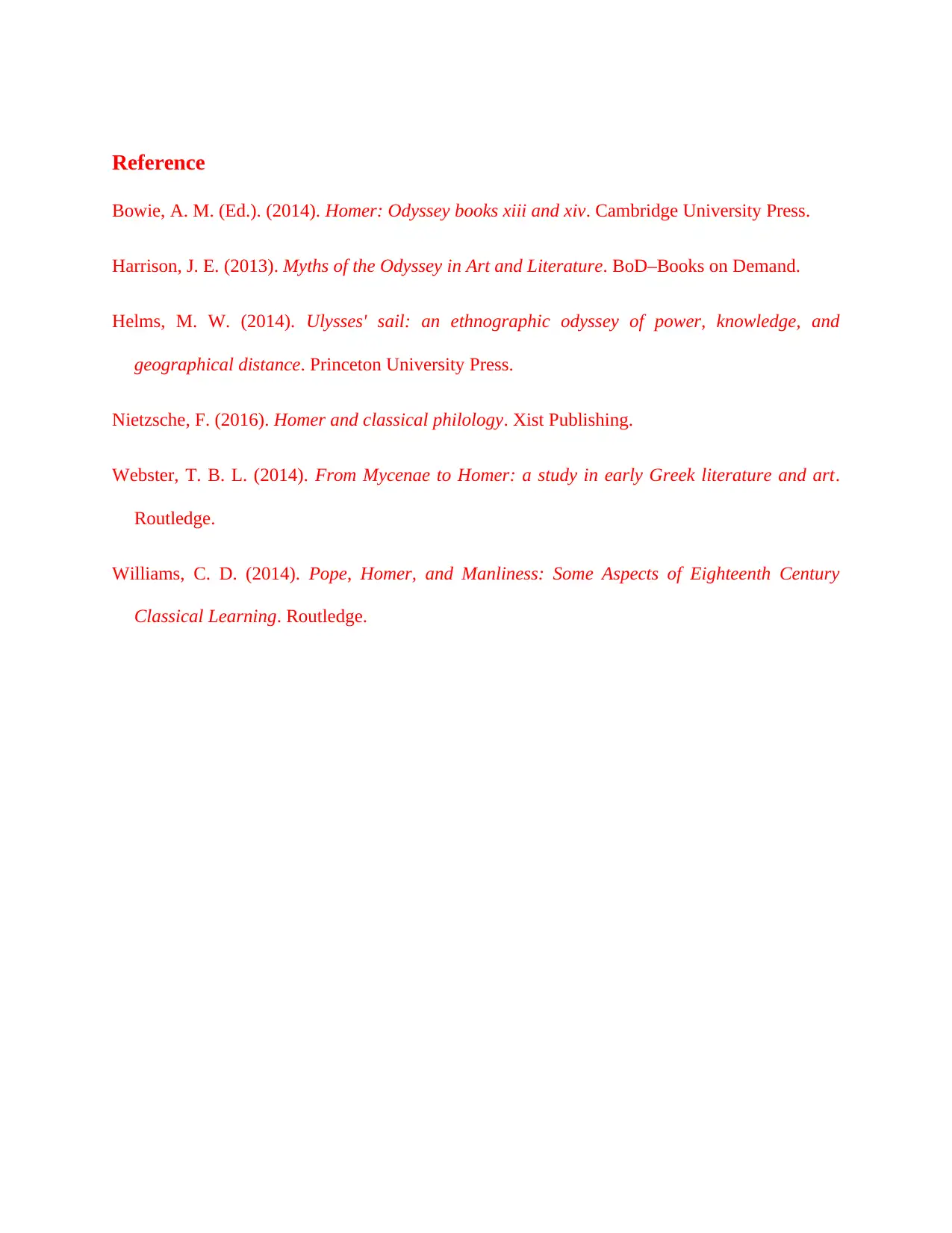Homer's Odyssey: A Summary and Literary Analysis of Books 1-4
VerifiedAdded on 2023/05/28
|4
|743
|364
Essay
AI Summary
This essay summarizes the initial four books of Homer's Odyssey. It begins with Homer's invocation of the muse and Odysseus's detainment on Ogygia with Calypso. Penelope is besieged by suitors, and Athena convinces Zeus to free Odysseus, despite Poseidon's wrath. Athena, disguised as Mentes, advises Telemachus to protect his home and mother. Book 2 details Telemachus's assembly and his defiance against the suitors, followed by his journey to seek news of Odysseus. Guided by Athena (as Mentor), he visits Nestor in Pylos and Menelaus in Sparta, learning about Odysseus's bravery and his captivity on Ogygia. This summary captures the key events and character developments in the opening books of the epic.
1 out of 4






![[object Object]](/_next/static/media/star-bottom.7253800d.svg)